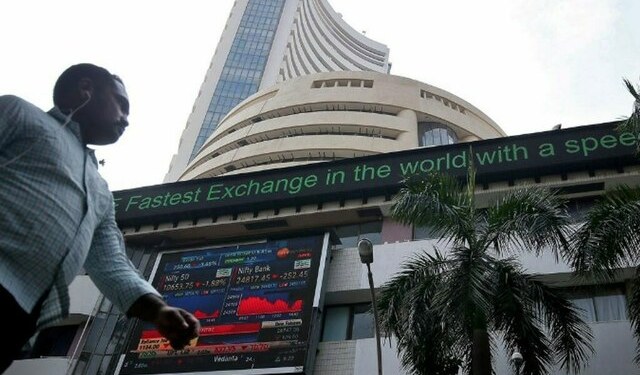(Bloomberg) — A report charging Venezuela’s government with crimes against humanity will be sent to the International Criminal Court on Wednesday as the head of the Organization of American States said he expects increasingly tougher sanctions to target President Nicolas Maduro’s regime soon.
Luis Almagro, the OAS secretary-general, said he expects at least one country to sponsor his organization’s report — which would trigger a formal investigation by the ICC — within a month. He declined to say which country would likely sponsor the effort, though he said four countries have signaled an interest in doing so.
An indictment by the ICC would put Maduro’s government on a par with regimes including Omar al-Bashir’s Sudan and Libya’s late Moammar Al Qaddafi.
“We expect justice” for the Venezuelan people, Almagro said in an interview Wednesday on Bloomberg Television, one day after a panel of experts convened by the OAS concluded that Maduro’s government was involved in multiple murders and at least 12,000 cases of imprisonment and arbitrary detention. It also accused the authorities of torture, rape, political persecution and enforced disappearances.
Read more: Venezuela Committing Crimes Against Humanity, OAS Panel Says
Almagro said Maduro and his allies are increasingly sealed off from the day-to-day economic and humanitarian plight of the country, which has been wracked by hyperinflation, shortages of food and other basic goods as well as the decline of Venezuela’s oil industry. Top regime officials now depend more on income from illicit activities, such as drug smuggling, than legal ones, he added.
“Nobody could do worse” at governing Venezuela, Almagro said, calling for the country to have a democratic transition. Canada, the U.S. and the European Union are all likely to keep ratcheting up sanctions on Venezuela in the coming weeks and months, he said, adding that the goal is “make sanctions as hard as possible to bring them to the negotiating table.”
On Wednesday, Canada imposed sanctions against Venezuelan first lady Cilia Flores and 13 key government and ruling party figures in response to “illegitimate and anti-democratic” elections held May 20. The sanctions freeze assets and prohibit Canadian citizens from dealing or providing financial services to those listed.
If the government does fall, its successor will have to work hard to rebuild the oil industry, which has long been the linchpin of the country’s economy. Almagro said he expects the situation in Venezuela to deteriorate quickly in the next month.
13,000% Inflation
In a statement Late Tuesday, Venezuela’s permanent OAS mission “categorically rejected” the report, saying it was prepared by “anti-Venezuelan activists” and was based on the testimony of “criminal fugitives.”
The report is part of a “propaganda campaign against the Venezuelan state, whose sole objective is to overthrow the Constitutional Government of President Nicolas Maduro,” the diplomats said in a statement.
Despite having the world’s largest crude reserves, Venezuela is confronting billions of dollars in debt payments that are coming due while creditors like ConocoPhillips (NYSE:) are seizing the assets of the state oil company. Hyperinflation could accelerate to 13,000 percent this year, and the International Monetary Fund forecast a 15 percent economic contraction.
Since November, Venezuela has skipped payment deadlines on nearly $4 billion in bonds, raising concern among creditors about the $65 billion outstanding from the nation and its state-run entities. Existing sanctions prohibit Americans from receiving new bonds in a restructuring.
‘Sham Election’
Less than a week after winning a second six-year term, Maduro said his government isn’t “doing things well” and needs to boost oil output by 1 million barrels a day. His government has typically blamed the nation’s ills on the private sector, U.S. sanctions and an “economic war” against Venezuela.
Despite the crisis, Almagro declined to forecast how long Maduro’s government could remain in power, saying he didn’t want to get into “futurology.” But he cited the historic ability of Caribbean governments, such as Cuba, to survive despite dire economic circumstances. And one advantage Venezuela has over Cuba, he added, is that people can migrate out of the country without taking to the sea.
The government is effectively trying to relieve political pressure by letting people go into exile, Almagro said. “What they are doing is transferring pressure to neighboring countries,” he said.
Read more – How Maduro Won Re-Election in a Beaten-Down Venezuela
Maduro won reelection earlier this month in a vote the Trump administration derided as a “sham” after the opposition’s biggest parties and most popular candidates were banned from the ballot.
In the report published Tuesday, the panel of experts said Maduro’s administration has pursued a “massive assault on the rule of law in Venezuela.” Moreover, widespread attacks on the judiciary have prevented any “genuine legal proceedings to investigate the crimes against humanity.”
“It’s all incomprehensible that this continues to occur in our continent,” said Manuel Ventura Robles, one of the panelists and a former judge of the Inter-American Court of Human Rights
(Updates 7th paragraph to add Canada´s sanctions.)
(Updates to add Canadian sanction in seventh paragraph.)
Source: Investing.com


























